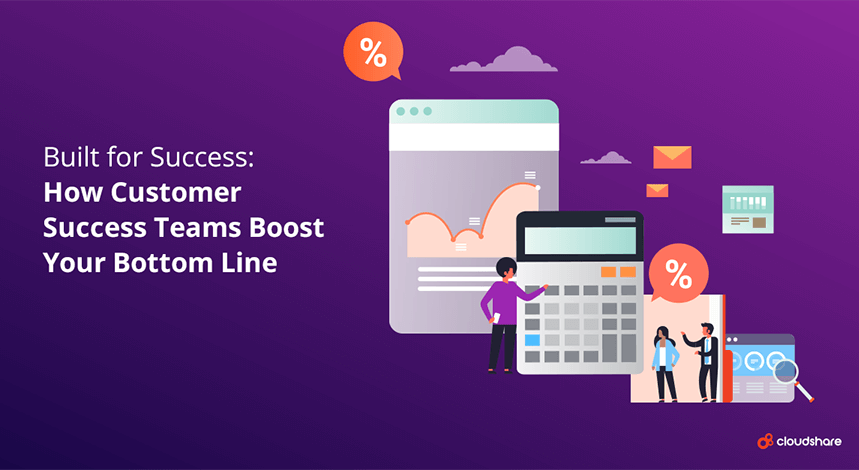Built for Success: How Customer Success Teams Boost Your Bottom Line
To get articles like this free in your inbox, subscribe to our newsletter.

People often use customer service and customer success interchangeably in conversation. Remove “customer” from the phrases and you’ll see the difference – service versus success.
Customer service is a support function that resolves an issue, such as reacting to a problem on an inbound call. Customer success is proactive; leveraging opportunities to foster an ongoing relationship. The goal is to cultivate enthusiastic clientele that will renew services, buy more over time and refer new customers. Investing in customer success helps you reduce churn and establish more customers in the loyalty column.
One is an isolated “transaction” to complete. The other a state which you hope never ends.
Customer success teams are emerging within the SaaS industry and if your company is interested in exploring how to develop a team around this practice, here are a few points to consider:
- Team Structure: Customer success initially fell under sales but is now more often with support. It makes sense: Knowledge sharing about customer-centric issues can lead to better end-to-end operations and outcomes. Still, it’s important to commit to a separate customer success team. Their role is distinct, so that means examining the entire process and lifecycle, and identifying the training and guidance they’ll need. HubSpot has some solid stats and graphics on how SaaS companies should consider customer success teams as they grow.
- Skills and Hiring: Customer service rolhttps://blog.hubspot.com/service/customer-success-saases are understood and tasks are often scripted. Practices aren’t so defined in customer success. It’s more intimate, requiring nuanced problem-solving and communication, deep interpersonal skills, subject matter expertise and more. This needs to be considered when it comes to hiring.
- Sales as a Solution: A sales push when a customer needs a problem resolved immediately is a sure way to lose them. However, when it comes to customer success, upselling and cross-selling solutions can actually deepen the relationship and raise the lifetime value they receive from your company. Everyone appreciates a trusted source. If you’ve proven yourself, you’re the answer. Make sure your customer success team knows the difference and how to respond.
- Measuring the Return: Customer support is a cost of operating a business (we offer some ways to help you improve your customer service offering) and a line item you always have. Customer success is a bit different. C-level execs typically feel ROI must be proven, and they often evaluate this by looking at what is lost if a function goes away. Don’t make the same mistake. Customer success decreases churn, increases lifetime customer value, presents opportunities for revenue from satisfied consumers and the chance to meet new ones. You’ll gain in the long-run, so be patient.
Finally, remember technology can make a difference, and when it comes to customer success, consider investing in the sales and support tools your staff will need to play in both areas. This only makes your team more cohesive and stronger in the long run – the happier your team is, the happier your customers will be.
Interested in learning more? Contact us for more information about our customer-facing solutions.
What you should do next…
1. Subscribe to our newsletter:
Subscribe to our newsletter below for the latest news, advice and thought-leadership for software professionals. Or visit our blog to browse our most recent articles.
2. Learn how virtual labs can grow your business:
To learn more about how CloudShare helps software organizations grow revenue, increase efficiency and improve quality, visit our resources page. You’ll be able to browser dozens of valuable white papers, eBooks, webinars, case studies, and brochures.
3. Get a FREE, no obligation demo:
Discover just how easy it is to create your cloud environment—in minutes! One of our friendly virtual labs experts will be happy to:
- Show you the platform in action
- Calculate pricing for your business
- Set you up with a 14-day free trial
- Answer any questions you have
- No pressure or obligation